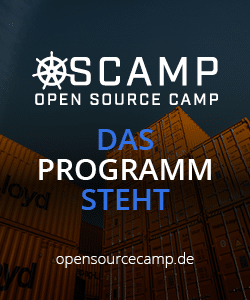
To begin, Thomas explained his preference against large VMs. With their high overheads, he sought alternatives to hypervisors such as KVM, Xen and VMware. Instead of virtualised kernels with virtualised hardware, Thomas referred to Jails (BSD) and Zones (Solaris), or Linux-vServer and OpenVZ for Linux. Where the required patched kernels are inappropriate, he offered Linux Containers (LXC) as substitutes. In the upstream since 2.6.29 and progressing slowly, Thomas liked them as they do not need direct hardware access, do not block devices, network or memory. But most of all he liked the fact such a virtual server can perform just as well as processes on the host itself, where one single kernel manages virtual memory enabling more virtual servers to be run than on a mature VMware.
Jannis followed with his JavaSript testing tip – Jasmine. The successor to JSUnit, he recommended this test unit suite for its lack of dependencies and ability to describe tests, and even gave a user login test example to boot.
Last but not least, Birger gave us a peek into the consulting team’s latest escapades: A Puppet project at Continental, the automotive supplier. Used to help manage their heterogeneous server environment, Puppet oversees Linux and HPUX systems. Though the first is far simpler than the latter, thanks to spirit of open source the automation project was nonetheless a success.
















